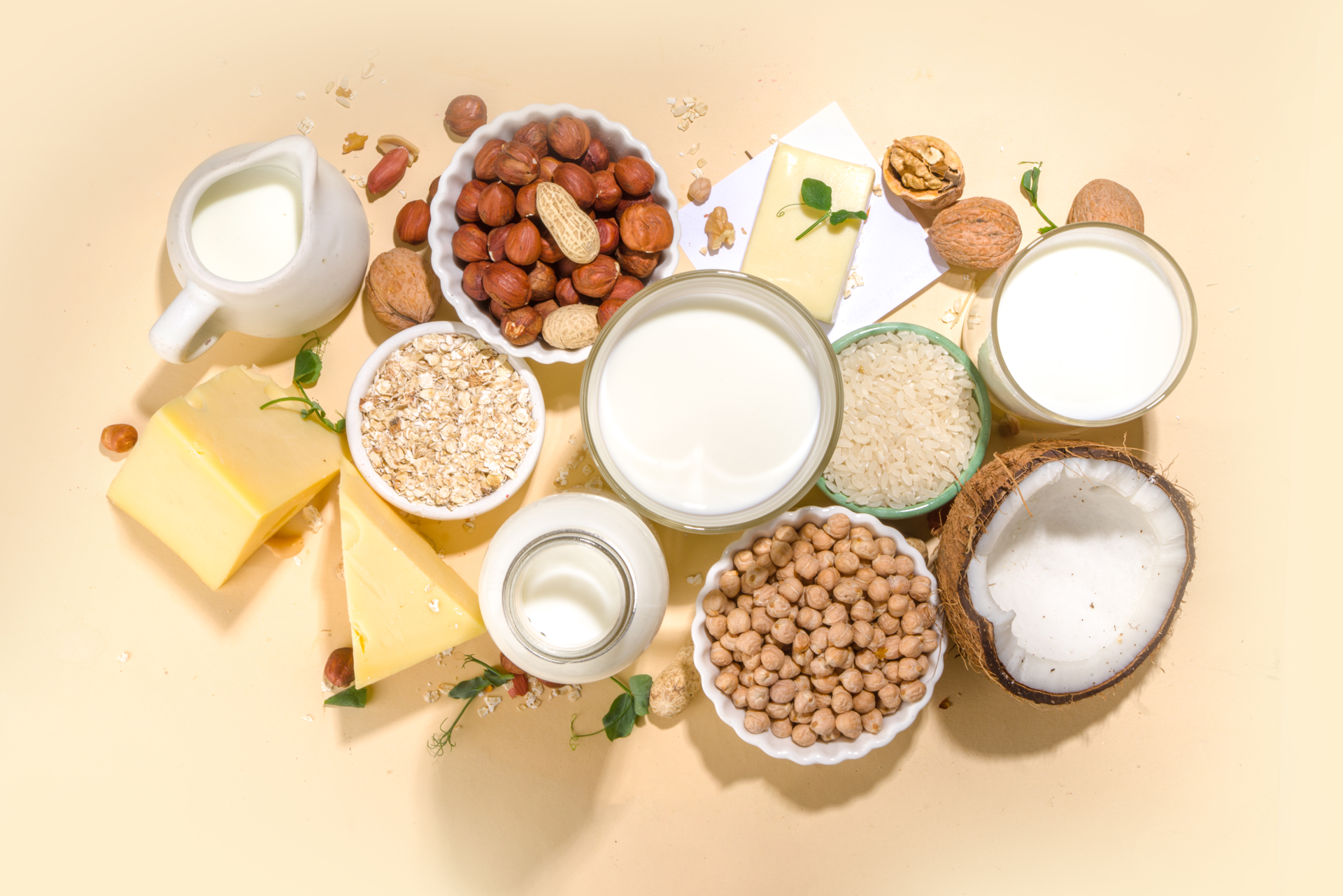VERTEUERUNG VON LEBENSMITTELN?
NICHT MIT UNS!
Ressourcenknappheit, Lieferkettenengpässe, explodierende Energiekosten, Preissteigerung von Grundnahrungsmitteln; wir leben in einer Zeit des massiven Umbruchs. Die Welt braucht die Veränderung und nicht mehr das Beharren auf den Status Quo. Pflanzenbasierte Produkte liegen aus ökologischen Gründen im Trend. Sie können aber auch die Lösung sein, um für die Breite der Bevölkerung die Versorgung mit hochwertigen, gesunden und günstigen Lebensmitteln zu sichern.



Das Milchgeld hat sich in den letzten zwölf Monaten etwa verdoppelt. Schön, dass die Bauern mehr erlösen. Sie haben nur nichts davon, denn ihre Kosten für Futtermittel haben sich drastisch erhöht. In der Verarbeitung der Milch kommen die explodierenden Energiekosten hinzu. Die Verteuerung ist somit fundamental. Die Folge: Die Preise für Grundnahrungsmittel wie Milch, Butter, Joghurt, Käse etc. sind für den Konsumenten um ca. 30% gestiegen.
Pflanzenbasierte Produkte werden größten Teils noch in der ideologischen veganen Nische oder als Teil eines Lifestyles gesehen. Die Rezepturen sind bisweilen noch „exotisch“, das Volumen begrenzt und die Preise hoch. Das muss nicht sein, denn die Rohstoffkosten von pflanzenbasierten Alternativen sind niedriger als die tierischer Produkte.


Die Voraussetzung, um pflanzenbasiert Produkte kostengünstig in großen Volumen herstellen zu können, ist, dass sie den Erwartungen des Mainstreams entsprechen.
Geschmack, Geruch und Aussehen von pflanzlichen Alternativen müssen so sein wie die Konsumenten es kennen, wie sie es gelernt haben. Eine vollwertige, gesunde Ernährung ist zu gewährleisten und eigentlich ist es Marktstandard, dass die Produkte „Clean Label“ sind, also ohne sogenannte E-Nummern und künstliche Aromen auskommen.
Häufig werden Proteinisolate verwendet. Diese sind zwar mittlerweile billig, weisen aber oft einen penetranten Nebengeschmack und deutliche Farbabweichungen auf. Da die Proteine denaturiert sind, haben sie keine Funktionalität. Die Folge ist, dass so ziemlich alle Zusatzstoffe, die von den Nahrungsmittelhersteller in den letzten Jahrzehnten aus den Rezepturen verbannt wurde, wieder enthalten sind.
Mit kalt und rein mechanisch gewonnenen Proteinen lässt sich das aber vermeiden. Ein Beispiel: Mandelprotein, schonend kaltgepresst und langsam mikrovermahlen, ist fast weiß und nahezu geschmacksneutral. Es ist nativ und damit hochfunktionell, hat emulgierende und gelierende Eigenschaften. Damit lassen sich z. B. Joghurts, Desserts, Drinks sowie gereifte Käse herstellen, die kaum von Milchprodukten zu unterscheiden sind.
Um kostengünstig große Volumen herstellen zu können, ist es entscheidend, dass die bestehenden hoch effizienten Technologien von Molkereien genutzt werden können. Dies ist der Fall. Die Milch wird einfach ersetzt. Der übrige Produktionsprozess ist identisch.
Also, es geht!
Lassen Sie uns gemeinsam erfolgreiche Produkte für den Mainstream entwickeln – lecker und günstig.



